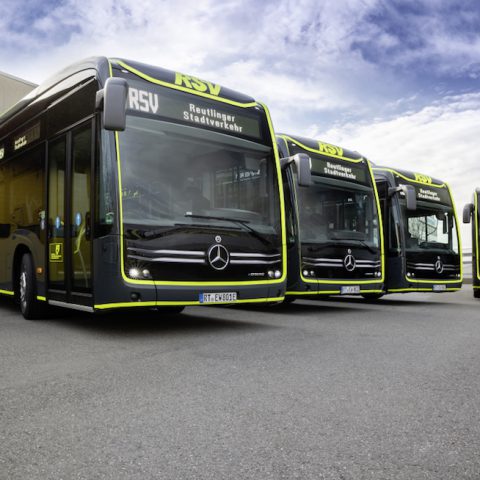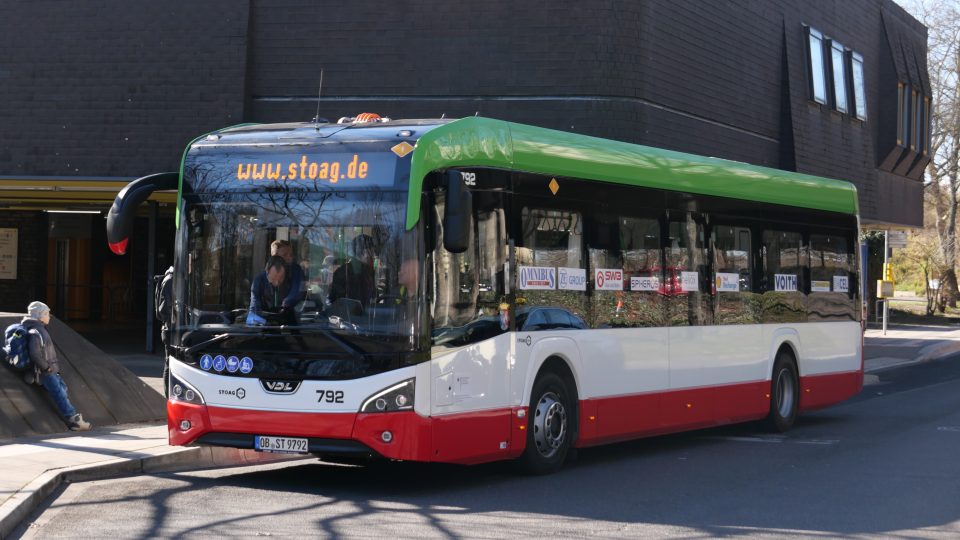Alternative drive buses made up 31% of the EU bus & coach market in 2021 (with e-buses reaching 10%)
In 2021, 68.8% of all new buses registered in the European Union ran on diesel. Electrically-chargeable buses posted strong growth, resulting in their market share increasing from 6.1% in 2020 to 10.6% last year. Alternative fuels powered 10.5% of all new buses sold, while hybrid electric vehicles accounted for 10.1% of the market. Together, all […]

In 2021, 68.8% of all new buses registered in the European Union ran on diesel. Electrically-chargeable buses posted strong growth, resulting in their market share increasing from 6.1% in 2020 to 10.6% last year. Alternative fuels powered 10.5% of all new buses sold, while hybrid electric vehicles accounted for 10.1% of the market. Together, all alternatively-powered vehicles made up 31.2% of the EU bus market in 2021. These figures have just been released by ACEA.
ACEA: diesel’s share in the bus market goes down
Last year, EU demand for diesel buses fell by 2.9% to 19,895 units, with diesel’s share of the market shrinking from 73.2% in 2020 to 68.8% in 2021. Out of the four major EU markets, only Italy saw an increase (+7.9%) in diesel sales. Spain recorded a double-digit drop (-19.8%), followed by Germany (-8.5%) and France (-2.4%) with more modest decreases. Just one petrol-fuelled bus was sold in 2021, ACEA mentions.
Electric bus registrations grows 78% in 2021
In 2021, registrations of new electrically-chargeable (ECV) buses (a definition that Includes full battery electric vehicles, fuel-cell electric vehicles, extended-range vehicles and plug-in hybrids) in the EU saw strong growth (+78.7%), counting 3,064 units and holding a market share of 10.6%. France was the leading market for electric buses with 622 units sold (+247.5%), followed by Germany (613 units; +57.6%) and Denmark (224 units; +3,633%). While the Netherlands still was the EU’s biggest electric bus market in 2020, Dutch sales fell by 57.6% last year. France and Germany together accounted for 40.3% of all electric buses sold in the EU in 2021.
Hybrid electric vehicles (HEV) made up 10.1% of the EU bus market last year, still ACEA says. Sales of hybrid buses grew by 10.0% in 2021 to reach a total of 2,926 new buses. Germany accounted for nearly half of total hybrid sales with 1,405 units registered throughout the year. 10.5% of new medium and heavy buses in the EU ran on alternative fuels3 in 2021, nearly all of them powered by natural gas.
Registrations of new alternative-fuel buses in the European Union declined by 2.3% to 3,033 units last year. France saw a significant increase in sales of buses running on alternative fuels (+61.3%), while both Spain and Italy posted negative growth (-42.6% and -15.2% respectively).







